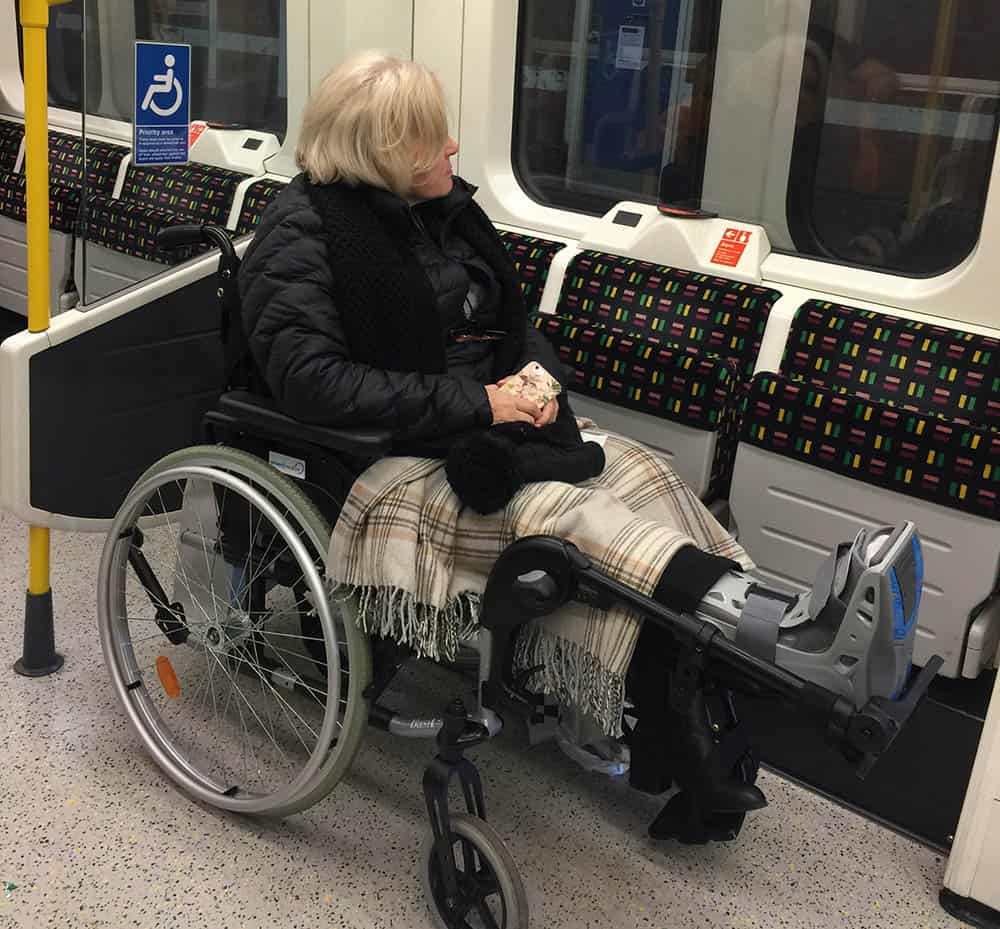Disability charity calls on UK Government to create new law to ensure all rail journeys are fully accessible by 2030

According to new analysis by Leonard Cheshire, the Government is set to miss its own target for making all railway stations step-free by 40 years.
The charity’s latest research shows that just under 40 percent of train stations across Great Britain still do not have full step-free access. Additionally, based on the Government’s current average completion rate, it will miss its 2030 target to make end to end journeys step-free by 40 years (2070), says the charity.
Even at an improved rate of 19 stations a year being made step-free from October 2019, Leonard Cheshire notes that work across the whole rail network wouldn’t be completed until 2070 as part of the Government’s Access for All funded projects.
In light of these statistics, Leonard Cheshire is calling on the UK Government to introduce new law that guarantees all rail journeys in Britain will be fully accessible by 2030.
In July 2018, the Government set out plans to make transport fully inclusive by 2030, with £300 million being made available to improve the UK’s transport network to enable disabled passengers to travel confidently and easily.
However, Leonard Cheshire’s research shows that 38 percent of rail stations across England, Scotland and Wales are still not step-free. This current inaccessibility of rail stations means disabled people will be excluded from travelling by train from their local station for work, education or to see friends and loved ones, says Leonard Cheshire.
The charity’s latest research also shows that only six train operating companies have increased the number of step-free stations they operate by over five percent, with just three delivering these improvements at 10 percent or more of their stations.
Overall, the percentage of stations that are step-free has changed by under five percent in all but two regions.
Kathy, who is a wheelchair user, relies on trains in Suffolk and her experiences have put her off public transport. She said: “Before I had mobility problems, I worked in London and commuted all the time. As soon as I had to start using a wheelchair, I started to have anxiety. I had to get used to the idea that I just couldn’t go everywhere I used to go.
“If I could count on rail to be accessible, I’d be free to travel further and not just for work. If I could get on and off trains quickly and easily, and be treated like any other passenger, I’d be more confident and would travel for pleasure.
“I will not travel during the Christmas period. Stations are congested and difficult to navigate in my wheelchair. People don’t always look where they are going and run in front of my wheelchair – I end up hitting them if I can’t break in time!”
Leonard Cheshire is now campaigning for legislation that will compel the government and rail operators to ensure all stations are fit for use by disabled people by 2030. It wants end to end journeys to be fully accessible from the purchase of a ticket through to station and on-board train information.
Neil Heslop, Chief Executive of Leonard Cheshire, commented: “This is a timely reminder that our current rail network often excludes disabled people from making journeys others take for granted.
“As families look to enjoy the festive season together, accessibility issues will add unnecessary stress to disabled travellers who negotiate a sub-standard network every day.
“We call on Boris Johnson to prioritise the acceleration of Access for All, so disabled people can enjoy the life opportunities provided through modern, accessible rail travel.”
Leonard Cheshire has also launched a new campaign called Trains for All to make rail transport accessible for everyone. The charity is encouraging people to join by adding their name in support of the campaign to make a more impactful message. You can join the campaign here

